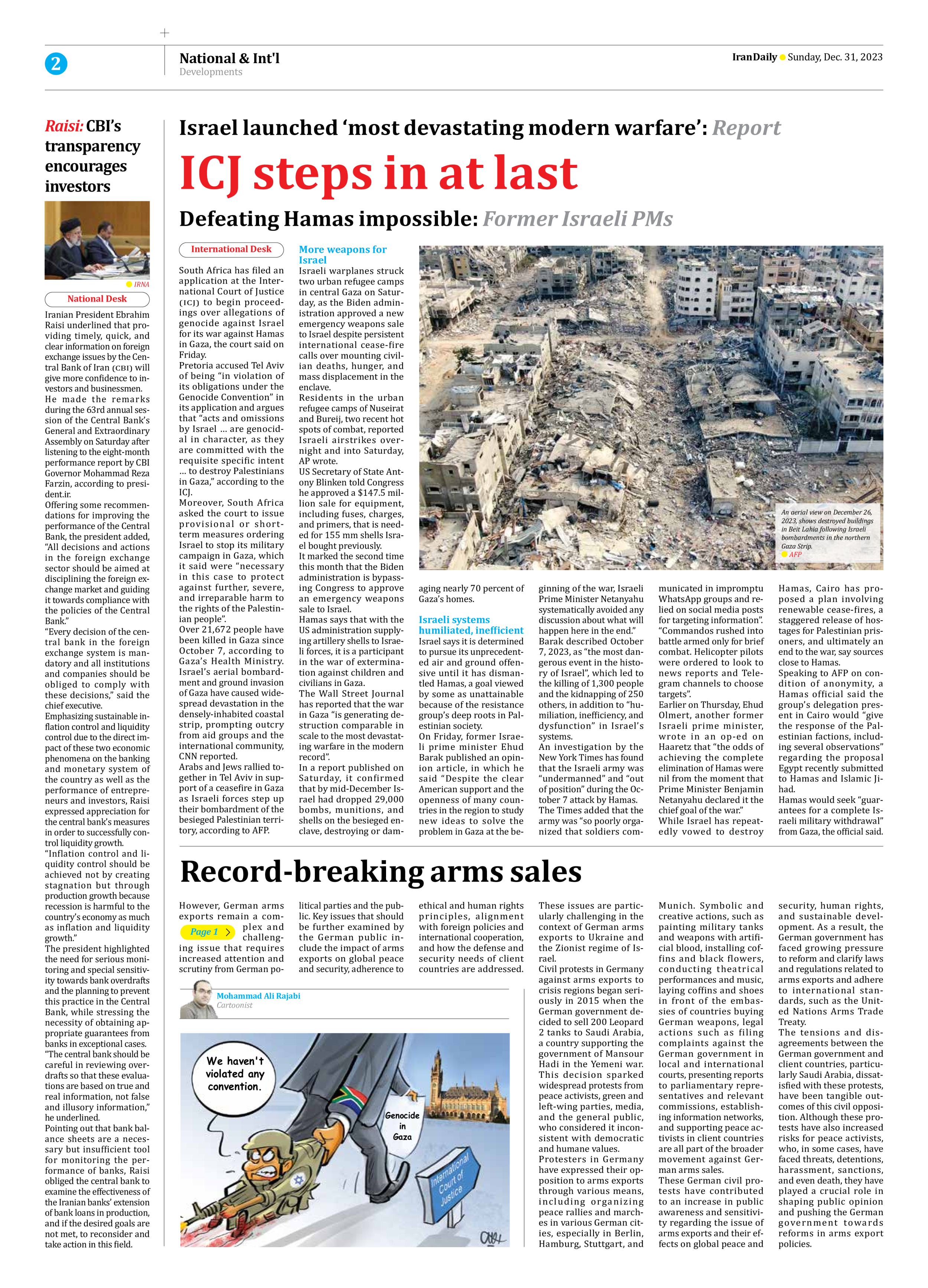
Record-breaking arms sales
Page 1
However, German arms exports remain a complex and challenging issue that requires increased attention and scrutiny from German political parties and the public. Key issues that should be further examined by the German public include the impact of arms exports on global peace and security, adherence to ethical and human rights principles, alignment with foreign policies and international cooperation, and how the defense and security needs of client countries are addressed. These issues are particularly challenging in the context of German arms exports to Ukraine and the Zionist regime of Israel.
Civil protests in Germany against arms exports to crisis regions began seriously in 2015 when the German government decided to sell 200 Leopard 2 tanks to Saudi Arabia, a country supporting the government of Mansour Hadi in the Yemeni war. This decision sparked widespread protests from peace activists, green and left-wing parties, media, and the general public, who considered it inconsistent with democratic and humane values.
Protesters in Germany have expressed their opposition to arms exports through various means, including organizing peace rallies and marches in various German cities, especially in Berlin, Hamburg, Stuttgart, and Munich. Symbolic and creative actions, such as painting military tanks and weapons with artificial blood, installing coffins and black flowers, conducting theatrical performances and music, laying coffins and shoes in front of the embassies of countries buying German weapons, legal actions such as filing complaints against the German government in local and international courts, presenting reports to parliamentary representatives and relevant commissions, establishing information networks, and supporting peace activists in client countries are all part of the broader movement against German arms sales.
These German civil protests have contributed to an increase in public awareness and sensitivity regarding the issue of arms exports and their effects on global peace and security, human rights, and sustainable development. As a result, the German government has faced growing pressure to reform and clarify laws and regulations related to arms exports and adhere to international standards, such as the United Nations Arms Trade
Treaty.
The tensions and disagreements between the German government and client countries, particularly Saudi Arabia, dissatisfied with these protests, have been tangible outcomes of this civil opposition. Although these protests have also increased risks for peace activists, who, in some cases, have faced threats, detentions, harassment, sanctions, and even death, they have played a crucial role in shaping public opinion and pushing the German government towards reforms in arms export
policies.







